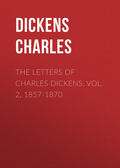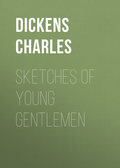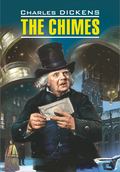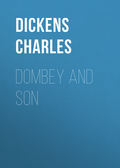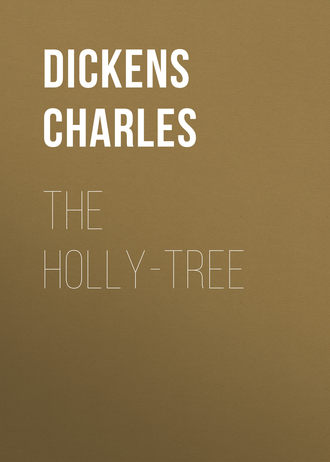
Чарльз Диккенс
The Holly-Tree
FIRST BRANCH – MYSELF
I have kept one secret in the course of my life. I am a bashful man. Nobody would suppose it, nobody ever does suppose it, nobody ever did suppose it, but I am naturally a bashful man. This is the secret which I have never breathed until now.
I might greatly move the reader by some account of the innumerable places I have not been to, the innumerable people I have not called upon or received, the innumerable social evasions I have been guilty of, solely because I am by original constitution and character a bashful man. But I will leave the reader unmoved, and proceed with the object before me.
That object is to give a plain account of my travels and discoveries in the Holly-Tree Inn; in which place of good entertainment for man and beast I was once snowed up.
It happened in the memorable year when I parted for ever from Angela Leath, whom I was shortly to have married, on making the discovery that she preferred my bosom friend. From our school-days I had freely admitted Edwin, in my own mind, to be far superior to myself; and, though I was grievously wounded at heart, I felt the preference to be natural, and tried to forgive them both. It was under these circumstances that I resolved to go to America – on my way to the Devil.
Communicating my discovery neither to Angela nor to Edwin, but resolving to write each of them an affecting letter conveying my blessing and forgiveness, which the steam-tender for shore should carry to the post when I myself should be bound for the New World, far beyond recall, – I say, locking up my grief in my own breast, and consoling myself as I could with the prospect of being generous, I quietly left all I held dear, and started on the desolate journey I have mentioned.
The dead winter-time was in full dreariness when I left my chambers for ever, at five o’clock in the morning. I had shaved by candle-light, of course, and was miserably cold, and experienced that general all-pervading sensation of getting up to be hanged which I have usually found inseparable from untimely rising under such circumstances.
How well I remember the forlorn aspect of Fleet Street when I came out of the Temple! The street-lamps flickering in the gusty north-east wind, as if the very gas were contorted with cold; the white-topped houses; the bleak, star-lighted sky; the market people and other early stragglers, trotting to circulate their almost frozen blood; the hospitable light and warmth of the few coffee-shops and public-houses that were open for such customers; the hard, dry, frosty rime with which the air was charged (the wind had already beaten it into every crevice), and which lashed my face like a steel whip.
It wanted nine days to the end of the month, and end of the year. The Post-office packet for the United States was to depart from Liverpool, weather permitting, on the first of the ensuing month, and I had the intervening time on my hands. I had taken this into consideration, and had resolved to make a visit to a certain spot (which I need not name) on the farther borders of Yorkshire. It was endeared to me by my having first seen Angela at a farmhouse in that place, and my melancholy was gratified by the idea of taking a wintry leave of it before my expatriation. I ought to explain, that, to avoid being sought out before my resolution should have been rendered irrevocable by being carried into full effect, I had written to Angela overnight, in my usual manner, lamenting that urgent business, of which she should know all particulars by-and-by – took me unexpectedly away from her for a week or ten days.
There was no Northern Railway at that time, and in its place there were stage-coaches; which I occasionally find myself, in common with some other people, affecting to lament now, but which everybody dreaded as a very serious penance then. I had secured the box-seat on the fastest of these, and my business in Fleet Street was to get into a cab with my portmanteau, so to make the best of my way to the Peacock at Islington, where I was to join this coach. But when one of our Temple watchmen, who carried my portmanteau into Fleet Street for me, told me about the huge blocks of ice that had for some days past been floating in the river, having closed up in the night, and made a walk from the Temple Gardens over to the Surrey shore, I began to ask myself the question, whether the box-seat would not be likely to put a sudden and a frosty end to my unhappiness. I was heart-broken, it is true, and yet I was not quite so far gone as to wish to be frozen to death.
When I got up to the Peacock, – where I found everybody drinking hot purl, in self-preservation, – I asked if there were an inside seat to spare. I then discovered that, inside or out, I was the only passenger. This gave me a still livelier idea of the great inclemency of the weather, since that coach always loaded particularly well. However, I took a little purl (which I found uncommonly good), and got into the coach. When I was seated, they built me up with straw to the waist, and, conscious of making a rather ridiculous appearance, I began my journey.
It was still dark when we left the Peacock. For a little while, pale, uncertain ghosts of houses and trees appeared and vanished, and then it was hard, black, frozen day. People were lighting their fires; smoke was mounting straight up high into the rarified air; and we were rattling for Highgate Archway over the hardest ground I have ever heard the ring of iron shoes on. As we got into the country, everything seemed to have grown old and gray. The roads, the trees, thatched roofs of cottages and homesteads, the ricks in farmers’ yards. Out-door work was abandoned, horse-troughs at roadside inns were frozen hard, no stragglers lounged about, doors were close shut, little turnpike houses had blazing fires inside, and children (even turnpike people have children, and seem to like them) rubbed the frost from the little panes of glass with their chubby arms, that their bright eyes might catch a glimpse of the solitary coach going by. I don’t know when the snow begin to set in; but I know that we were changing horses somewhere when I heard the guard remark, “That the old lady up in the sky was picking her geese pretty hard to-day.” Then, indeed, I found the white down falling fast and thick.
The lonely day wore on, and I dozed it out, as a lonely traveller does. I was warm and valiant after eating and drinking, – particularly after dinner; cold and depressed at all other times. I was always bewildered as to time and place, and always more or less out of my senses. The coach and horses seemed to execute in chorus Auld Lang Syne, without a moment’s intermission. They kept the time and tune with the greatest regularity, and rose into the swell at the beginning of the Refrain, with a precision that worried me to death. While we changed horses, the guard and coachman went stumping up and down the road, printing off their shoes in the snow, and poured so much liquid consolation into themselves without being any the worse for it, that I began to confound them, as it darkened again, with two great white casks standing on end. Our horses tumbled down in solitary places, and we got them up, – which was the pleasantest variety I had, for it warmed me. And it snowed and snowed, and still it snowed, and never left off snowing. All night long we went on in this manner. Thus we came round the clock, upon the Great North Road, to the performance of Auld Lang Syne by day again. And it snowed and snowed, and still it snowed, and never left off snowing.
I forget now where we were at noon on the second day, and where we ought to have been; but I know that we were scores of miles behindhand, and that our case was growing worse every hour. The drift was becoming prodigiously deep; landmarks were getting snowed out; the road and the fields were all one; instead of having fences and hedge-rows to guide us, we went crunching on over an unbroken surface of ghastly white that might sink beneath us at any moment and drop us down a whole hillside. Still the coachman and guard – who kept together on the box, always in council, and looking well about them – made out the track with astonishing sagacity.
When we came in sight of a town, it looked, to my fancy, like a large drawing on a slate, with abundance of slate-pencil expended on the churches and houses where the snow lay thickest. When we came within a town, and found the church clocks all stopped, the dial-faces choked with snow, and the inn-signs blotted out, it seemed as if the whole place were overgrown with white moss. As to the coach, it was a mere snowball; similarly, the men and boys who ran along beside us to the town’s end, turning our clogged wheels and encouraging our horses, were men and boys of snow; and the bleak wild solitude to which they at last dismissed us was a snowy Sahara. One would have thought this enough: notwithstanding which, I pledge my word that it snowed and snowed, and still it snowed, and never left off snowing.
We performed Auld Lang Syne the whole day; seeing nothing, out of towns and villages, but the track of stoats, hares, and foxes, and sometimes of birds. At nine o’clock at night, on a Yorkshire moor, a cheerful burst from our horn, and a welcome sound of talking, with a glimmering and moving about of lanterns, roused me from my drowsy state. I found that we were going to change.
They helped me out, and I said to a waiter, whose bare head became as white as King Lear’s in a single minute, “What Inn is this?”
“The Holly-Tree, sir,” said he.
“Upon my word, I believe,” said I, apologetically, to the guard and coachman, “that I must stop here.”
Now the landlord, and the landlady, and the ostler, and the post-boy, and all the stable authorities, had already asked the coachman, to the wide-eyed interest of all the rest of the establishment, if he meant to go on. The coachman had already replied, “Yes, he’d take her through it,” – meaning by Her the coach, – “if so be as George would stand by him.” George was the guard, and he had already sworn that he would stand by him. So the helpers were already getting the horses out.
My declaring myself beaten, after this parley, was not an announcement without preparation. Indeed, but for the way to the announcement being smoothed by the parley, I more than doubt whether, as an innately bashful man, I should have had the confidence to make it. As it was, it received the approval even of the guard and coachman. Therefore, with many confirmations of my inclining, and many remarks from one bystander to another, that the gentleman could go for’ard by the mail to-morrow, whereas to-night he would only be froze, and where was the good of a gentleman being froze – ah, let alone buried alive (which latter clause was added by a humorous helper as a joke at my expense, and was extremely well received), I saw my portmanteau got out stiff, like a frozen body; did the handsome thing by the guard and coachman; wished them good-night and a prosperous journey; and, a little ashamed of myself, after all, for leaving them to fight it out alone, followed the landlord, landlady, and waiter of the Holly-Tree up-stairs.
I thought I had never seen such a large room as that into which they showed me. It had five windows, with dark red curtains that would have absorbed the light of a general illumination; and there were complications of drapery at the top of the curtains, that went wandering about the wall in a most extraordinary manner. I asked for a smaller room, and they told me there was no smaller room.
They could screen me in, however, the landlord said. They brought a great old japanned screen, with natives (Japanese, I suppose) engaged in a variety of idiotic pursuits all over it; and left me roasting whole before an immense fire.
My bedroom was some quarter of a mile off, up a great staircase at the end of a long gallery; and nobody knows what a misery this is to a bashful man who would rather not meet people on the stairs. It was the grimmest room I have ever had the nightmare in; and all the furniture, from the four posts of the bed to the two old silver candle-sticks, was tall, high-shouldered, and spindle-waisted. Below, in my sitting-room, if I looked round my screen, the wind rushed at me like a mad bull; if I stuck to my arm-chair, the fire scorched me to the colour of a new brick. The chimney-piece was very high, and there was a bad glass – what I may call a wavy glass – above it, which, when I stood up, just showed me my anterior phrenological developments, – and these never look well, in any subject, cut short off at the eyebrow. If I stood with my back to the fire, a gloomy vault of darkness above and beyond the screen insisted on being looked at; and, in its dim remoteness, the drapery of the ten curtains of the five windows went twisting and creeping about, like a nest of gigantic worms.
I suppose that what I observe in myself must be observed by some other men of similar character in themselves; therefore I am emboldened to mention, that, when I travel, I never arrive at a place but I immediately want to go away from it. Before I had finished my supper of broiled fowl and mulled port, I had impressed upon the waiter in detail my arrangements for departure in the morning. Breakfast and bill at eight. Fly at nine. Two horses, or, if needful, even four.
Tired though I was, the night appeared about a week long. In cases of nightmare, I thought of Angela, and felt more depressed than ever by the reflection that I was on the shortest road to Gretna Green. What had I to do with Gretna Green? I was not going that way to the Devil, but by the American route, I remarked in my bitterness.



